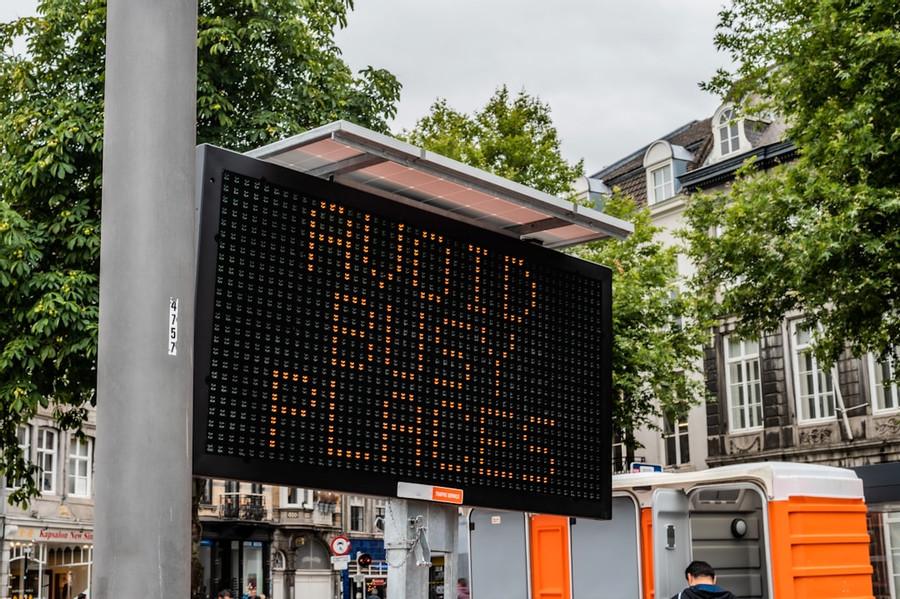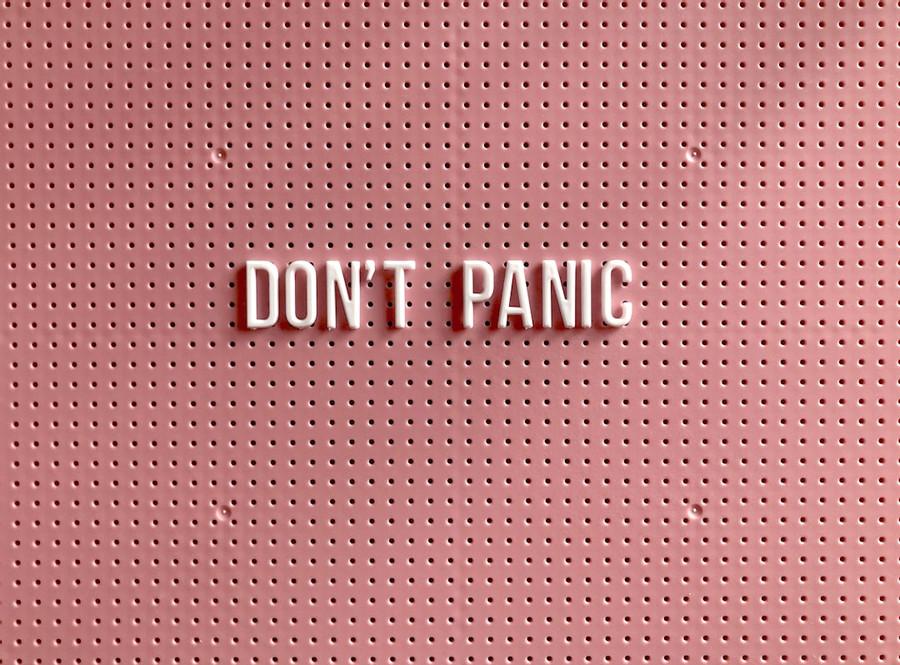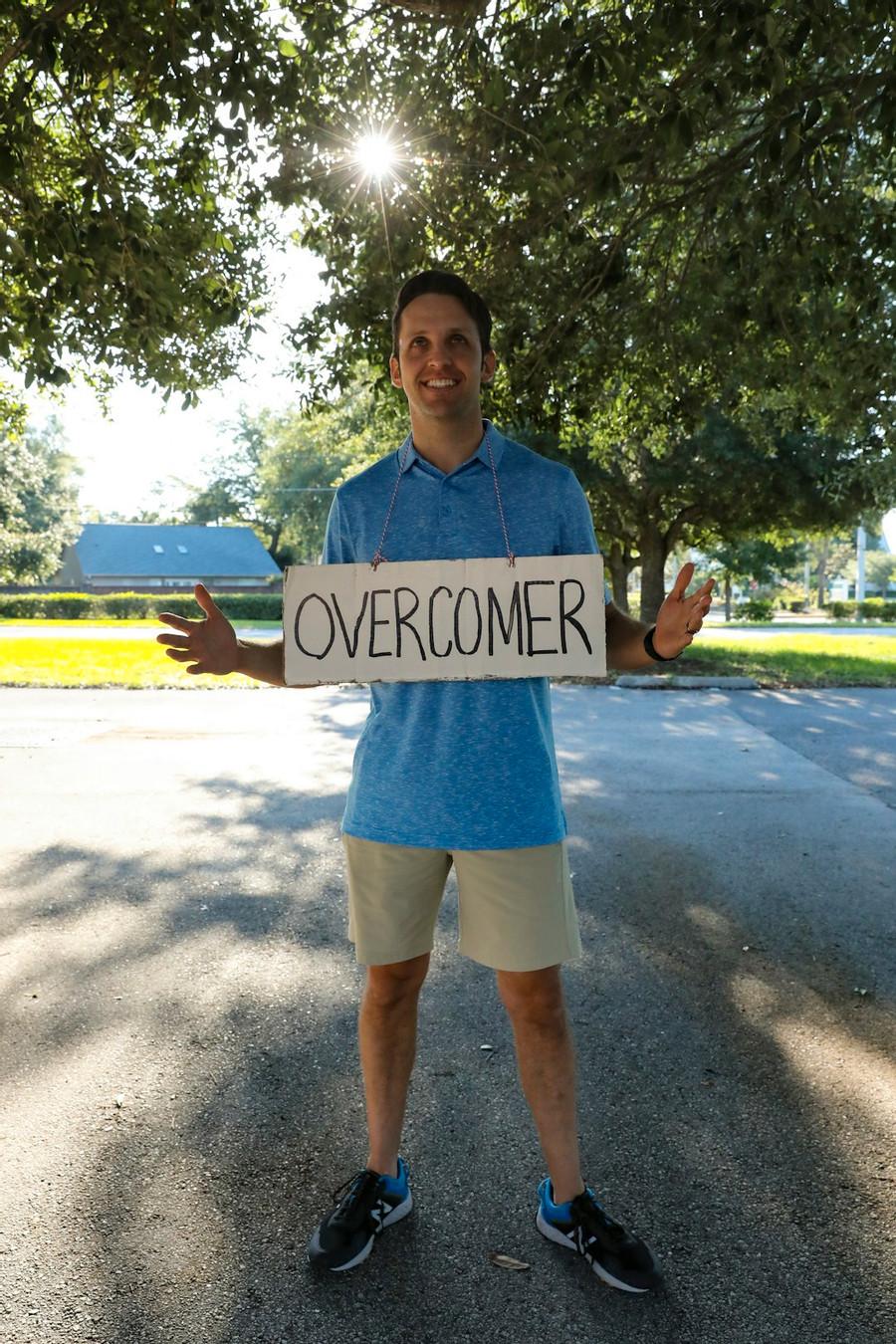The Psychology and Causes of Procrastination – Solving Procrastination
Curated from: solvingprocrastination.com
Ideas, facts & insights covering these topics:
32 ideas
·9.8K reads
39
Explore the World's Best Ideas
Join today and uncover 100+ curated journeys from 50+ topics. Unlock access to our mobile app with extensive features.
Why People Procrastinate: The Psychology and Causes of Procrastination
Procrastinating is the intentional delay of doing what you know you should be doing.
You may have asked questions like:
- “why do I procrastinate so much?” or
- “why do I keep procrastinating even though I know that it’s bad for me?”
Answering these questions will help you understand what is the underlying cause of your desire to procrastinate.
82
817 reads
The Drive To Act
The drive to act represents how strongly people can push themselves to take action at the moment
Your procrastination depends on your self-control and motivation, which are influenced by various factors.
Things like exhaustion and far-future outcomes can interfere with self-control and motivation, and consequently reduce people’s drive to act, as can many other issues, like depression, ADHD, and low self-efficacy.
74
707 reads
The Drive To Delay
The drive to delay represents how strongly people feel pushed to avoid taking action at the moment.
It depends primarily on the desire to feel better in the short term, by avoiding negative emotions (e.g., fear of a certain task), and by increasing positive emotions (e.g., through digital entertainment).
This drive involves various issues, like anxiety and perfectionism, which people want to avoid in order to protect their emotions in the short term.
76
584 reads
Common Reasons Why People Procrastinate: Page 1
Prioritization of short-term mood (i.e., preferring to feel better right now even if this will lead to feeling worse later).
Task aversiveness (i.e., thinking a task is frustrating, boring, or unpleasant in another way).
Anxiety and fear (e.g., due to concerns over being criticized).
Feeling overwhelmed (e.g., due to having so many things to do that it’s unclear where to start).
Perfectionism (e.g., due to refusal to publish work with any flaws).
Disconnect from the future self (e.g., viewing the consequences of your delay as something that someone else will experience).
89
540 reads
Common Reasons Why People Procrastinate: Page 2
Delayed outcomes (e.g. due to rewards that are far in the future).
Low motivation (e.g. due to low-value outcomes).
Expected effort (e.g. due to hard tasks).
Inertia (i.e. the tendency to keep doing what you’re already doing).
Abstract goals (i.e. ones not clearly defined).
Cognitive biases (e.g. being unreasonably pessimistic).
Time-management issues (e.g., failure to prioritize tasks)
Problematic traits (e.g. impulsivity)
Underlying behaviors (e.g. rebellion against an authority)
Underlying conditions (e.g. depression)
Low energy (e.g. lack of sleep)
Low capacity for self-control
Distracting environment
85
446 reads
The Relationship Between These Reasons & Procrastination
- Although some types of perfectionism and fear generally increase procrastination, other types generally decrease it (by increasing people’s motivation to act).
- Many of these issues are interrelated. For example, depression can cause lack of energy, which can exacerbate anxiety, which can increase task aversiveness. Similarly, the effect of anxiety on procrastination can be reduced by factors like high self-efficacy and mindfulness.
73
434 reads
People Can Procrastinate For Different Reasons
- For example, one person might procrastinate due to anxiety, while someone else might procrastinate due to a combination of perfectionism and abstract goals.
- Furthermore, a person can procrastinate for different reasons at different times and under different circumstances, sometimes leading to differences in how they procrastinate too.
72
377 reads
Prioritization of Short-term Mood
People sometimes procrastinate because they prioritize their short-term mood over their long-term achievement and wellbeing. For example, a student might delay doing an important assignment that they find stressful, because this helps them feel better in the short term.
This primarily happens when people postpone doing something that they expect will cause them negative emotions.
This phenomenon is a form of mood repair and the pleasure principle (tending to seek pleasurable activities and avoid unpleasant ones).
72
343 reads
Task Aversiveness
People sometimes procrastinate because they perceive their tasks as unpleasant. For example, someone might delay making an unpleasant phone call, to delay the negative emotions that this phone call could bring.
A task can be seen as aversive (i.e., unpleasant) due to many issues, like being frustrating, boring, or monotonous, or involving uncertainty (e.g., because its instructions are unclear). Aversiveness depends on people’s subjective perception; for example, introverts might find a certain social task unpleasant, while extroverts might find it enjoyable.
73
299 reads
Anxiety and Fear
People sometimes procrastinate because they’re anxious about or afraid of something. For example, someone might delay checking their bills because they feel anxious about seeing how much they need to pay. Similarly, an author might delay getting feedback on their book, because they’re afraid of being criticized.
People can be anxious about or afraid of many things, like failing or being negatively evaluated. These concerns are often—though not always—irrational, for example because they’re exaggerated.
73
284 reads
Feeling overwhelmed
People sometimes procrastinate because they feel overwhelmed. For example, someone might delay cleaning their house because there are so many things to do that they don’t know where to start.
People can feel overwhelmed for many reasons, such as that a task seems too hard or too complicated. In the context of indecision and analysis paralysis (or choice paralysis), this is often due to choice overload (or over choice), where people have too many options to choose from.
74
260 reads
Perfectionism
People sometimes procrastinate because of their perfectionism. For example, a researcher might keep going over a paper’s draft even once it’s good enough to submit, because they’re unwilling to accept that it might have any flaws (even inconsequential ones).
This is sometimes associated with a desire or intent to pursue a better option later, for example when someone delays starting to exercise at home, because they want to eventually join a gym, even though it would still be better for them to start exercising now regardless.
73
245 reads
Disconnect From the Future Self
People sometimes procrastinate because they feel disconnected from their future self. For example, someone might delay improving their diet, because they view the consequences of a bad diet as a problem that someone else (i.e., their future self) will need to deal with.
This phenomenon is called temporal disjunction (or temporal self-discontinuity), and can increase the prioritization of short-term mood.
73
258 reads
Delayed Outcomes
People sometimes procrastinate because they discount the value of future outcomes. For example, someone might delay working on a project whose rewards they’ll only receive in a month, because those rewards are so far away that they don’t feel real.
Essentially, outcome delay reduces people’s perceived value of outcomes, which reduces people’s motivation to act. This phenomenon, called temporal discounting.
73
230 reads
Low Motivation
People sometimes procrastinate because their motivation to act is low
Various issues can reduce people’s motivation, including:
- Low-value outcomes
- Delayed outcomes
- Motivators that are extrinsic and controlled, rather than intrinsic and autonomous
- Outcomes and actions that are incompatible with a person’s self-identity
- Low expectancy of achieving positive outcomes, for example, due to imposter syndrome or low self-efficacy
- Difficulty in associating tasks with their outcomes
- Low achievement motivation- a weak innate drive to pursue one’s goals.
- Underlying conditions, like depression.
73
217 reads
Expected Effort
People sometimes procrastinate because taking action requires effort that they’re reluctant to exert. For example, someone might postpone a task because they expect it to take a lot of hard work, which they don’t want to do now.
The more effort people think is required, and the more reluctant they are to exert effort, the more likely they are to procrastinate. Effort can take various forms, like physical or mental exertion. People can also engage in effort discounting, by devaluing outcomes that require effort.
72
203 reads
Inertia
Inertia is people’s tendency to keep doing what they’re already doing, which can lead them to keep procrastinating once they’ve started.
In addition to practical considerations, inertia as a cause of procrastination can involve various psychological mechanisms. For example, it can involve reduced motivation to act. It can also involve inaction inertia, where skipping an initial opportunity to take action decreases the likelihood of taking action under similar future opportunities.
72
201 reads
Abstract Goals
Goals that are unclear can make people more likely to procrastinate than goals that are concrete and well-defined. For example, goals such as “get fit” or “start exercising” are vague, and are therefore more likely to lead to procrastination than a concrete goal like “be able to run on the treadmill’s medium setting for 30 minutes straight”.
Concrete goals are especially effective when they’re associated with a specific plan of implementation, like “go to the gym on Monday, Wednesday, and Friday right after work, and spend at least 20 minutes running on the treadmill each time”.
73
185 reads
Cognitive Biases
Various cognitive biases can lead to procrastination. Examples are:
- Pessimism bias can cause someone to incorrectly assumes that their project is likely to fail, which can discourage them from even trying
- Optimism bias can lead to procrastination if it causes someone to incorrectly assumes that they won’t run into any issues while working
- Planning fallacy- people underestimate how long it will take to complete a future task
- Bandwagon effect can make someone more likely to procrastinate if they see their peers doing the same.
- Projection bias can exacerbate procrastination cycles
73
195 reads
Time-Management Issues
Some time-management issues can lead to procrastination. For example, someone might procrastinate on an important task if they fail to prioritize their tasks properly, and consequently fail to realize how important it is to finish that task on time.
These issues are often driven by underlying issues with emotion regulation. For example, if someone is afraid of a task because they doubt their ability to complete it, then they might convince themselves that the task is easier than it really is, to protect their feelings in the short term.
72
180 reads
Problematic Traits
Some personality traits can increase the likelihood of procrastination. Some traits are:
- Impulsivity (the tendency to act on sudden whims without thinking ahead)
- Distractibility (difficulty in maintaining attention due to the tendency to be easily diverted from matters)
- Disinhibition
- Proneness to boredom
- Sensitivity to outcome delay
- Impatience
- Laziness
- Low perseverance
- Insecurity
- Low confidence
- Low self-compassion.
- Other traits, like extraversion and neuroticism, can also matter, primarily by influencing how people procrastinate.
73
186 reads
Underlying Behaviors
For example, a student procrastinate on studying- they are self-handicapping so that if they do badly they can attribute it to procrastination rather than their abilities, to protect their self-esteem.
Underlying behaviors include:
- Self-sabotaging, when people procrastinate to hinder their own success and wellbeing
- Sensation seeking, like when they want to add challenge and excitement to tasks like working up against deadline.
- Seeking distraction
- Seeking control, to feel in control of their life and schedule
- Rebellion- to get revenge against an authority figure that they resent
- Multi-tasking
72
183 reads
Underlying Conditions
Some underlying conditions can make people more likely to procrastinate. For example, ADHD (attention-deficit/hyperactivity disorder) can make it harder for someone to concentrate on work, and consequently more likely to stop engaging with it. Similarly, depression can also cause someone to procrastinate, by making them feel tired and reducing their interest in outcomes.
72
182 reads
Low Energy
Low levels of mental and physical energy can lead to procrastination. For example, someone might delay washing the dishes when they get home, because they’re tired from having worked hard all day.
Low energy levels can be caused by various issues, like lack of sleep, burnout (a form of emotional exhaustion), and depression,
72
174 reads
Low Capacity for Self-Control
Self-control (also known as self-discipline and willpower) reflects people’s ability to guide their behavior in pursuit of their goals, especially when faced with harmful temptations. Being able to exert self-control is crucial to successfully self-regulating one’s behavior and avoiding procrastination.
Accordingly, procrastination is sometimes said to occur because of akrasia, a state of mind where someone acts against their better judgment due to a lack of sufficient self-control.
Various issues can lead to low self-control, like genetic predisposition, exhaustion, and decision fatigue
75
177 reads
Problematic Environment
Various aspects of the environment and situations that people operate can make people more likely to procrastinate. For example, a student may be more likely to procrastinate when there are many distractions in their environment (e.g., access to social media platforms like Reddit), or when they’re in a noisy environment.
Many situational factors can make procrastination more likely, including clutter, problematic timing of shifts at work, unclear directions, unstructured work, and poor organizational fit.
71
168 reads
Overcoming Procrastination
To stop procrastinating, do the following:
- Set specific and realistic goals
- Assess your procrastination. Identify cases in which you procrastinate, to figure out what you procrastinate on and how (by browsing social media). Then, think about where and when you procrastinate (at home or the library, in the morning or evening). Figure out why you procrastinate (e.g., due to perfectionism, or abstract goals)
- Create an action plan. Use relevant anti-procrastination techniques
- Implement your plan. Make sure to reflect on your progress and refine your approach, Figure out which techniques work for you
78
181 reads
Anti-Procrastination Techniques (Page 1)
Techniques are:
- Break tasks into manageable steps (e.g., into sub-tasks that you can easily complete).
- Commit to a tiny first step (e.g., to working for just 2 minutes).
- Give yourself permission to make mistakes (e.g., by accepting that your work won’t be perfect).
- Make it easier to do things (e.g., by preparing everything you need in advance).
- Make tasks more enjoyable (e.g., by listening to music while you do them).
- Make it harder to procrastinate (e.g., by removing potential distractions).
- Delay before indulging the impulse to procrastinate (e.g., by counting to 10 first).
86
195 reads
Anti-Procrastination Techniques (Page 2)
- Set deadlines (e.g., by deciding that you’ll complete a certain task by noon tomorrow).
- Plan how you’ll handle obstacles (e.g., by deciding that if X happens, then you’ll do Y).
- Identify and address your fears (e.g., by considering what advice you’d give to a friend).
- Increase your motivation (e.g., by marking streaks of days on which you achieve your goals).
- Increase your energy (e.g., by taking necessary breaks).
- Improve your environment (e.g., by adding reminders of your goals).
- Use social techniques (e.g., by emulating a role model).
84
187 reads
Anti-Procrastination Techniques (Page 3)
- Use time-management techniques (e.g., by alternating consistently between work and rest)
- Create starting rituals (e.g., by counting down from five before taking action).
- Start with your best or worst task (e.g., with your easiest or hardest one).
- Develop self-efficacy (e.g., by reflecting on your successes).
- Develop self-compassion (e.g., by reminding yourself that everyone makes mistakes).
- Treat underlying conditions (e.g., ADHD).
You can use any combination of techniques that you want, but should start by focusing on a few that seem most relevant to your situation.
83
170 reads
Anti-Procrastination Tips
Note that you’ll likely benefit from writing things down, such as your goals and plan. This can have various benefits, like helping you think more clearly and making your decisions feel more concrete.
In addition, remember that imperfect action is generally better than no action, so you’ll benefit more from trying to do just some of the above, than from getting stuck doing nothing at all. Also, the longer you delay, the more likely you are to do nothing, so you should start right now!
76
168 reads
IDEAS CURATED BY
I'm a writer obsessed with sharing new ideas in the areas of mindset, personal development, self-help, procrastination, productivity, writing, organization, and health & fitness
CURATOR'S NOTE
Everyone procrastinates at sometime. But, understanding why you procrastinate will help you know what anti-procrastination techniques to try.
“
Similar ideas
5 ideas
The Psychology and Causes of Procrastination – Solving Procrastination
solvingprocrastination.com
6 ideas
Tips and Techniques for Overcoming Procrastination – Solving Procrastination
solvingprocrastination.com
5 ideas
Read & Learn
20x Faster
without
deepstash
with
deepstash
with
deepstash
Personalized microlearning
—
100+ Learning Journeys
—
Access to 200,000+ ideas
—
Access to the mobile app
—
Unlimited idea saving
—
—
Unlimited history
—
—
Unlimited listening to ideas
—
—
Downloading & offline access
—
—
Supercharge your mind with one idea per day
Enter your email and spend 1 minute every day to learn something new.
I agree to receive email updates





























